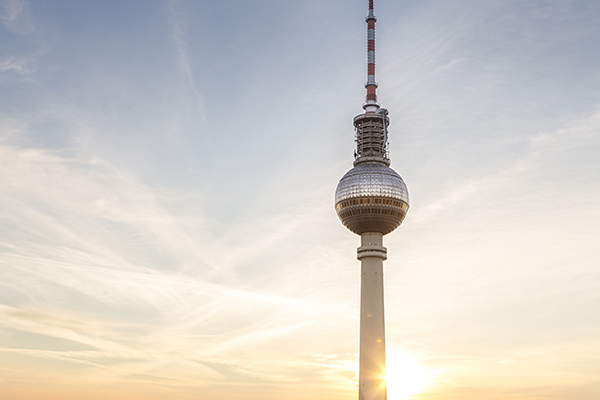It is incredible that in this age of hyper connection that I feel even more disconnected from reality than ever. As an avid reader and news junkie, I must confess that these are perilous times for me. I have to battle between my own notion of common sense and the hyperbolic news headlines of our current day to day lives.
The world according to Davos
This is how I felt watching the reports from Davos a couple of weeks ago. It was odd to see the level of attention given to the US President’s visit to the World Economic Forum at Davos - Klosters, Switzerland. More commonly known as Davos, it is the annual meeting of world leaders in business and politics where those in the know deliberate on future trends and the health of the global economy. It was also the first visit by a sitting US President in a number of years. I am not sure what people expected President Trump to say - perhaps they were keen to find out what fresh perspective he might bring as someone who tapped into the frustration and anger of parts of the US population during the 2016 US Presidential election. I did, however, find it peculiar that the person who railed against the elite during his election campaign so desperately wanted to attend the meeting. Alas, what do I know?
As I listened to his speech, I must admit that his sales pitch of America being open for business was unusual. I think everyone in the audience were mentally recapping the last twelve months of the Trump administration. The rhetoric was especially hard to believe given some of the actions taken in the last twelve months. Such as US withdrawal from the Trans Pacific Partnership which was earmarked to be one of the largest trading blocs in the world (and a perfect counter balance to China’s One Belt One Road Initiative). Also, the US is now the only country in the world not part of the Paris Climate Accord when there is global consensus on the imminent threat climate change poses to the world’s population.
Similarly the UK’s Prime Minister sounded oddly optimistic about the UK’s prospects outside of the European Union while still steadfastly remaining a leading champion of an open, rules –based international trading system. I am sure that this was difficult to believe given the elephant in the room – Brexit. (The UK is currently negotiating its exit from the largest trading bloc in the world which is due to take effect in March 2019).
There is no doubt amongst the global elite that exiting the EU will have long lasting consequences on the UK’s influence on the global stage.
All in all my take on both appearances was how much we exist in a parallel universe where the architects of the international rules - based system and the previous proponents of free trade have retreated from their position. In the case of the US, the protectionist and isolationist signals eclipse any statements or policy actions which declare America is open for trade and investment opportunities. One such example is the rhetoric around the renegotiation of the North American Free Trade Agreement and the curbing of the H1B visa which attracts highly skilled workers globally to the work in the US STEM sectors.
Whilst observing from this side of the Atlantic, the Prime Minister’s Davos speech touting the pros and cons of technology and artificial intelligence zeroed in on a tool without communicating a clear vision of the UK in the 21st century, especially one in which its citizens feel a part of and have a stake in its outcome.
What I found most revealing about the world according to Davos was the self-congratulatory tone of the proceedings. The global economy is humming once more. Although there were kernels of caution addressing the need for globalization to work for everyone, most failed to address policy ideas and innovations that would do just that.
The view from Grimbsy
Watching this from afar whilst reading a revealing article in the Guardian about the town of Grimsby brought my thoughts home in a way that both angered me and left me unsettled. In spite of the headlines and the black magic of rising GDP growth indices, there are people all over the world in real economic hardship and pain due to our dysfunctional economic system characterized by low, stagnant wages and rampant inequality.
These types of articles were a dime a dozen after Brexit and the recent US Presidential Election. The disaffected rose to prominent acclaim in long articles below the global media mastheads. Yet, in spite of all that came afterwards, here we are at the beginning of 2018 listening to our leaders sound overly optimistic about our prospective futures. But we know better. We can still feel it - the seething anger below the surface made more potent as the days pass by.
I shudder to think what would happen when the promises made by politicians are not delivered, namely jobs returning home in the US and millions of pounds flowing back into state coffers to save the ailing NHS in the UK. Were these promises meant to appease the populace in the short term while politicians develop a better narrative for the long term? If so, then the time for this has run out.
When observing the proceedings in Davos it felt like it occurred in some alternate reality. Discussions around big issues such as automation, future of work and globalization are nuanced, complex and feel a bit nebulous albeit they are all cast as the archetypal, new boogeyman on the horizon threatening our everyday lives. Conversely, most of us understand kitchen table issues where our concerns are more specific, more immediate. Can I afford my weekly grocery shop? Will I be able to cover my rent?
In her speech, Prime Minister May alluded to a UK economy that works for everyone but did not expand further on how a fairer, more equitable economy can actually be achieved. Whilst, President Trump oddly received a lot of praise for his statement at Davos that “the single-best anti-poverty programme is a very simple and very beautiful paycheck.” This really underscores the gaping chasm that exists in our discourse. On one hand, the rhetoric is either too vague or overly simplistic on the other.
According to the recent RSA report “Seven Portraits of Modern workers,” here in the UK, in spite of receiving a “very beautiful paycheck” 34% of the workforce are “just about managing” and 26% of workers do not feel like they earn enough to maintain a decent standard of living. In fact according to Anthony Painter, Director of the RSA’s Action Research Centre, in the UK, "in-work poverty has grown to the extent that it is now more common than out of work poverty.”
The seething anger I mentioned earlier is fueled in large part by the deep malaise of economic insecurity that feels baked into our current modern working life.
Economic Insecurity defined as harmful volatility in people’s economic circumstances. This includes their exposure to objective and perceived risks to their economic well–being, and their capacity to prepare for, respond to and recover from shocks or adverse events.events.[i]
Truthfully, I don’t have the answer but unless we address this current malaise it will continue to silently corrode our sense of dignity and cohesion as a society.
What I do know is that a good place to start is for politicians to acknowledge that hard things are hard. It is difficult to address decades of neglect and decay in our towns, villages and communities with a singular policy. There is no magic bullet. We can first start with the principle that behind every statistic is an individual and thus the framing of our socio – economic policies should speak to this notion that everyone is worthy of dignity and inalienable rights.
For example, everyone has the right to a “standard of living adequate to the health and wellbeing of the individual and his or her family” and the primary role of the state is to ensure that this is a reality for each and every citizen. [i]
For more RSA Research content on Economic Insecurity, have a look at the recently published RSA Report entitled “Addressing Economic Insecurity.”
Related articles
-
The 30th anniversary of the Velvet Revolution
Alastair Merrill
Alastair Merrill FRSA reflects on the Velvet Revolution, which was key to freeing Czechoslovakia from Communist totalitarianism.
-
Local leaders around the world are rebuilding progressive politics
Riley Thorold
Cities and mayors are leading the way for democratic innovation and inclusive growth.
-
Can radical politics work?
Anthony Painter
What do Jeremy Corbyn, Donald Trump, and Vladimir Putin have in common? Not as much as we've been led to believe, argues Anthony Painter




Be the first to write a comment
Comments
Please login to post a comment or reply
Don't have an account? Click here to register.